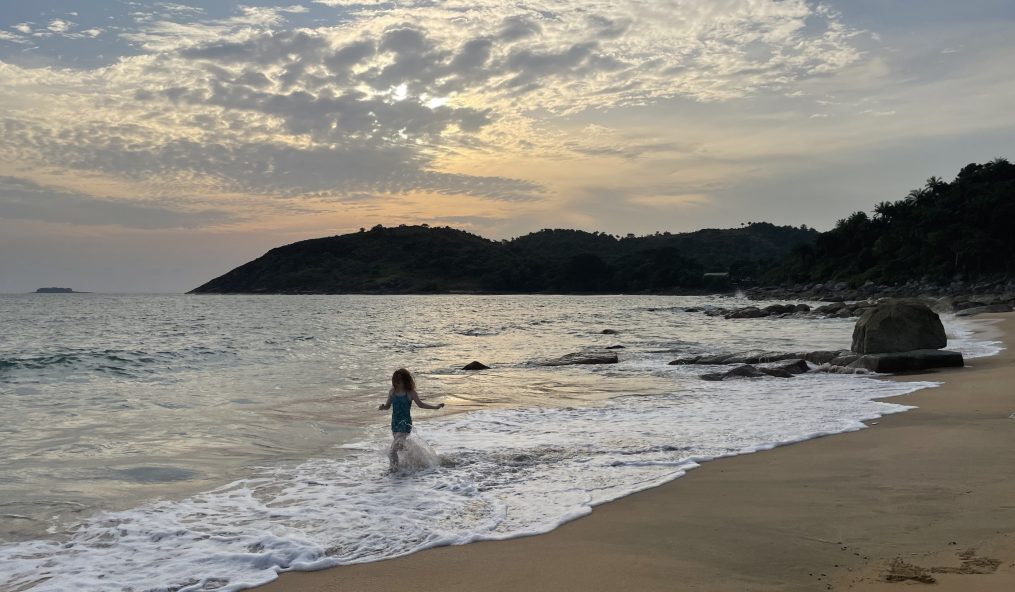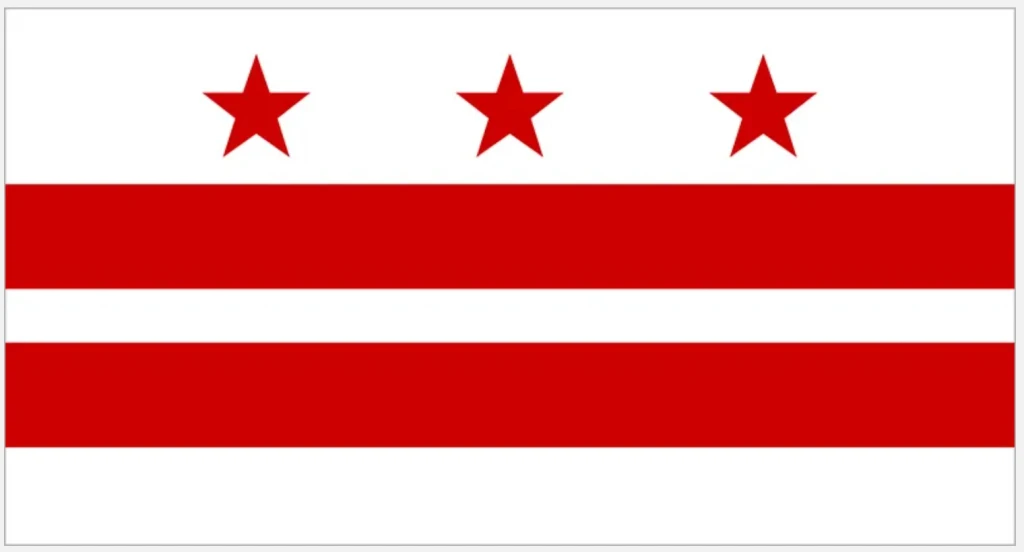
How Did I Get Here?
This is not where I expected to be: neither in Washington, D.C. nor bidding for my next job. I expected to still be working in Guinea and to have another year before my next bidding cycle. But, here I am.
It was in 2020 that I last went through the U.S. Foreign Service bidding cycle, when those whose tours are coming to an end apply, or rather “bid,” for their next assignment. With nine months of training and then a planned three-year tour, I expected to work in Guinea until the summer of 2025, with bidding then landing in the fall of 2024. Unfortunately, for a host of reasons, I curtailed from my assignment in Conakry after only six months, and returned to Washington in January 2023.
I landed a great assignment in the Afghanistan Special Immigrant Visa Unit reviewing application documentation from Afghans who were employed by or on behalf of the U.S.. When Kabul fell and the U.S. made its final withdrawal from Afghanistan in August 2021, I was on my Home Leave between my assignment in Malawi and starting my training for Guinea. As many of my colleagues assisted with the final evacuation or with Afghans resettling in the U.S., I felt useless watching it unfold and not being in a position to assist. With my current posting, I am now able to help in a small way.
Conventional wisdom in the Foreign Service says that an officer should spend the first two tours overseas and the third in D.C. And plenty of people follow this playbook. The thing is everyone knows an exception to the rule, including quite a few high level officers. For me, I figured A. I spent several years working for the federal government in Washington before joining the State Department and B. The high cost of living in and around the nation’s capital is not at all single-parent friendly.
Yet at the beginning of 2023, counter to all my best-laid plans, I found us in Washington. A condition of my curtailment was to work here at least one year, and I was lucky to secure a position for a year and a half. Though a part of me would like to be abroad again, another, much stronger, part could not fathom moving again so soon. We had moved three times in nine months. To Guinea in June 2022, to temporary housing in the States in January 2023, and then into more permanent housing in March 2023. Throw in the second half of our between tours Home Leave with a trip to Grand Teton and Yellowstone and then nearly two weeks in a hotel and it’s more upheaval. Add in our departure from Malawi and then Home Leave in Florida in August 2021 and then the move to Virginia in September 2021 for nine months, and the tally is five or six moves in a 20-month period. Guinea was supposed to have been for three years. My daughter, my cats, and me, well, we deserve to settle in for a spell.
And so this is where I found myself: bidding earlier than expected, bidding from a different place than expected, and bidding on different jobs than expected.
On the Auction Block

It is not easy to explain the whack-a-doodle (why yes, this is a diplomatic term) process the Foreign Service has its mid-level diplomats go through to procure their next assignment. Here we are, having already passed a multi-step rigorous entrance exam to join the ranks of the diplomatic corps, every two to four years in a stressful and time consuming competition for our next assignment.
I have bid mid-level twice before. The first time was in 2016, when I tried to compare it to how teenagers might finagle a date to the homecoming dance. My second mid-level bidding session occurred in 2020, smack in the middle of all the weirdness of the first six to eight months of the COVID-19 pandemic, when I attempted to equate bidding to buying a house in a very competitive market. This year though, the whole thing felt more like an auction.
It is not a perfect analogy. Though I have not been to a live auction, I have seen them portrayed in movies and television, and they move with lightning speed. You have an item up for bid, the auctioneer gives a little introduction and then a starting price, and then away it goes. Within minutes the item is sold and the next item is up for bid. The government, however, does not do anything quite that fast. Our bidding is a slow burn that takes place over weeks. We have our catalog of open positions with written descriptions and we set up calls with the incumbent to gather more information. We can see in the system how many people are bidding our target jobs, but we are not in the room with them. We do not know how serious their bids may be, we do not know what they are bringing to the table. They might raise their paddle to express interest, but they can later decide not to make a final offer. We are hoping that our bid package–a combination of our past assignments, references, and interview responses–will make us the highest bidder on at least one of our preferred jobs.
In the early days of the bid season, I felt very much like a competitive bidder. With multiple tours under my belt at different posts (some Consulates, some Embassies, and now a DC job) and in different career tracks (some consular, some political, and now a management designated one), I felt fairly confident as I strode into the virtual auction houses. During interviews I felt like a bidder on the edge of her seat, straining to hold my bid paddle higher than any others, basically yelling “pick-me!” with every response.
However, as the day approached to lock in bids, I felt less like a bidder and more like the auctioneer trying desperately to sell myself, the “as-is” vase sitting alone on the pedestal in the glaring spotlight. “The next item up for bid is this capable mid-level officer with twelve years in the Department. She has both consular and political positions under her belt. She is about as handy as a pocket on your shirt. Let’s start the bidding at….” The power had shifted to the offices, who were now the buyers. Would any one of them bid on me?
Joining the Club of the Unassigned
The bid season lasts approximately eight weeks. For the first five weeks, bidding officers and offices with open positions prepare their respective bid cards, with bidders figuring out which positions will make their official bid list and offices ranking those they interview. At the end of the five weeks, bidders lock in their final five to ten bids in the system and hit submit. During the last three weeks, offices work out who they want. Shortlists of the top three to five candidates are made. Those who make the shortlists are informed. Top candidates will be sent a “Bureau Leading Candidate” (BLC) email about five days before the last day of the official bid season. Offers, called “handshakes,” are sent out on the last day.
I did not receive one.
While many may receive one or more offers on Handshake Day, a good many will not. This year I noticed several emails touting the statistic that 30-50% of positions remained unfilled a month after Handshake Day. Still, though we are told this and we tell one another its normal and not to put too much stock into it, when you see many friends and colleagues posting about their next assignment on the day, it does not feel all that great to be without.
And this was the first time I had not received a handshake on the day. During my first go-round my offer arrived two days late though it was dated handshake day (the bureau, it seemed, had forgotten to send it). In my second mid-level bid season, I received two BLC emails (not really a humble brag — my strategy? Bid jobs with few to no other bidders!), and once I made my preference known, the official offer came on Handshake Day. Nonetheless, this time, I had become an “unassigned bidder.” The auction had closed, and I had been swept off the display table to be stored in a back room until I found an office to proffer me the coveted handshake.
Success at Last!
Luckily, though Handshake Day might be the end of bidding for some, for others this is when things just get going. In this auction, an individual can only be the successful bidder on one item; any unfilled positions are then back in play. A week after Handshake Day, I was back searching the available jobs and found not only a few new-to-me unfilled positions, but also positions still open among my top four choices! Two weeks after the official Handshake Day, I received an offer for one of my original top desired jobs and I readily accepted. The day after I received another and had to turn that one down. All’s well that ends well, I suppose, but I am glad to be done with it, at least for (fingers crossed) two more years.
Our next assignment: Another domestic job in Washington. (I know, the whole title was a spoil alert!) I will be a Career Development Officer, like an assignment counselor, for first and second-tour officers. And for the first time in my Foreign Service career, I will not have to move when I change jobs.

